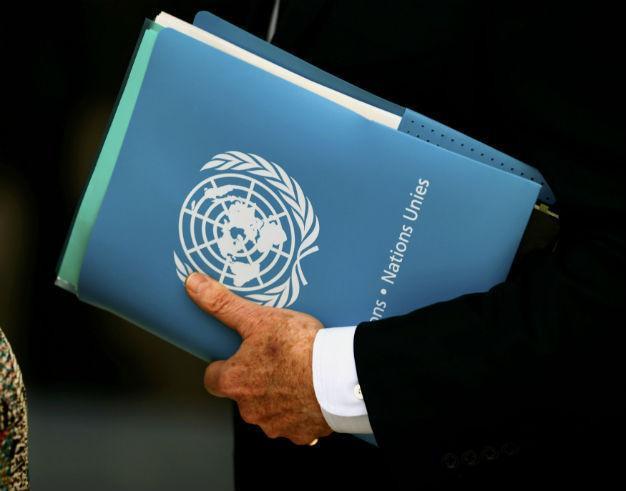Syria considerations confine calls for accountability in Geneva bubble
Emine Kart – GENEVA

REUTERS photo
Geopolitical considerations and the current battle on the ground in Syria are preventing the search for greater accountability on human rights issues in the ongoing conflict, according to diplomats in Geneva observing the U.N. Human Rights Council.“We have found that the call to follow up on accountability differs according to the situation on the ground,” a diplomat speaking on condition of anonymity told the Hürriyet Daily News.
In many cases, geopolitical considerations have been outweighing the work of the HRC, which is putatively guided by the words of former Secretary-General Kofi Annan: “We will not enjoy security without development; we will not enjoy development without security; and we will not enjoy either without respect for human rights.”
A draft resolution entitled “The human rights situation in the Syrian Arab Republic” was recently submitted by the United Kingdom, France, Italy, Germany, the United States, Kuwait, Saudi Arabia, Qatar, Morocco and Jordan and Turkey.
“Turkey is keen to use the resolution to talk about the [Bashar] al-Assad regime’s violations of human rights. But the priority of the resolution’s [author], the U.K., is clear about extending the mission of inquiry,” the diplomat said.
Turkey is currently not a member of the council of 47 member states, which are elected by the majority of members of the U.N. General Assembly through a direct and secret ballot. However, it is involved in the work of the HRC via different mechanisms such as the co-sponsoring of draft resolutions or by being member of core groups tabling resolutions. A considerable number of Geneva-based diplomats from different countries defined Turkey’s role at the council as a “bridge-building country” mainly because of its membership in the Organization of the Islamic Cooperation (OIC).
The draft calls for a one-year extension of “the mandate of the Commission of Inquiry, established by the Human Rights Council … to investigate all alleged violations and abuses of international human rights law since March 2011 in the Syrian Arab Republic, to establish the facts and circumstances and to support efforts to ensure that perpetrators of abuses and violations, including those who may be responsible for crimes against humanity, are held accountable.”
The British delegation has openly said the resolution will be of “limited ambition” because they want the resolution to extend the mandate of the independent commission of inquiry for another year while also avoiding any interference with the political process that is currently continuing.
U.N. Special Envoy on Syria Staffan de Mistura has concurrently been holding talks with a Syrian government delegation and opposition groups in a bid to provide impetus to peace talks where the divisive issue of a political transition is stalling progress.
“Now that there appears to be some dynamic in the process after the cessation of hostilities and some degree of humanitarian access that was there, they have already declared that they will not push for a huge revolution in the language and a greater sophistication as far as accountability,” the diplomat said.
“I have come to the conclusion that nearly none of the Syrian parties are masters of their faith, they are all dependent on their respective sponsoring countries and the respective sponsoring countries are all here and then they are pushing for or pushing against accountability according to the situation on the ground in the sense that if the forces they are protecting are making progress, then they will not push for accountability, but if they are losing on the ground, then they will push for accountability. So there is a certain cynicism in how the accountability is dealt with by some members of the United Nations and of the council,” he said.
















